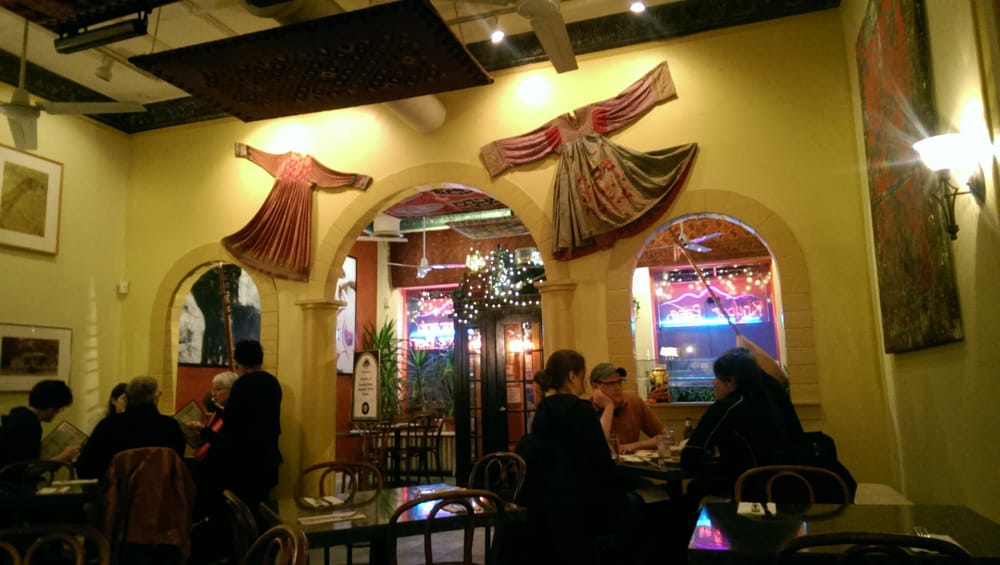With authentic Afghan food and a homey – but bustling – atmosphere, The Khyber Pass Café has become a hotspot for jazz musicians and fans alike in St. Paul, Minnesota.
Husband and wife Emel and Masooda Sherzad run the café, which Masooda inherited from her parents. Natives of Afghanistan, her parents prided themselves on authentic family recipes, which they handed down to their daughter and son-in-law along with the café itself.
While the Khyber Pass flourishes today as the go-to place for jazz jams in St. Paul, it did not always draw such popular attention. Emel originally introduced the regular jazz concerts as a way to keep the café alive after a financial crisis. While a few local musicians initially agreed to perform as an act of charity to support the then-struggling restaurant, artists now flock to the thriving café’s rich musical scene.
Emel Sherzad Turns to Music in Prison
Long before he walked into the Minnesota café run by his future wife, Emel Sherzad had deep connections to music. When the Soviet Army entered Kabul in 1978, Emel was thrown in prison, while 30 of his extended family members were executed. While sitting in jail for more than half a year, Emel wrote down the names of every musician he wanted to see and hear if he ever got out.
“In the beginning, [the names] just came pouring out,” Emel recalls. “Then, of course, it slowed down to a trickle. But in nine months, I never ran out of names. It was an obsession.”
After his release, Emel left Afghanistan. He first landed in Switzerland, and eventually ended up in Minnesota, where this love of music lives on through the Khyber Pass Café and his own radio show on local station KFAI. He uses these outlets to spotlight his prison-list of musicians, as well as discover new ones.
Masooda Sherzad’s Shared Exile and Love of Music
Emel and Masooda bonded over their shared experience of exile. Like Emel, Masooda’s family could not return to their home after escaping Afghanistan via Pakistan before settling in the Minnesota. In 1984, the family opened Khyber Pass Café.
Emel began frequenting the café while studying at nearby Macalaster University. He soon began working there. After briefly leaving town for graduate school, he returned to marry Masooda and take over the café.
The couple never saw their café as merely a place of food. Instead, they decorated the space with Emel’s paintings and filled the air with their favorite music – for Emel, jazz music, and for Masooda, classical North Indian dance.
Khyber Pass Café and Jazz – A Match Made in Heaven
The musicians in Khyber Pass Café play a range of genres, experimenting from electronica to progressive jazz. Although they originally agreed to do shows simply to help keep the café alive, the musicians decided keep the concerts going even once the restaurant flourished.
“Emel is a gift,” says Dave Seru, a drummer and one of the curators of the café’s regular jazz nights. “It is frankly not advisable from a business perspective to do what he is doing. He takes risks, and as improvising musicians, we do, too.”
For Emel, these risks pay off in the joy of music.
“I think about going to prison and losing my country, and I feel tremendously sad for all the poor people who have suffered,” he says. “But to me personally, it was a blessing in disguise – I love that phrase. Because music has been instrumental in making me believe that we are lucky to live in this world.”



